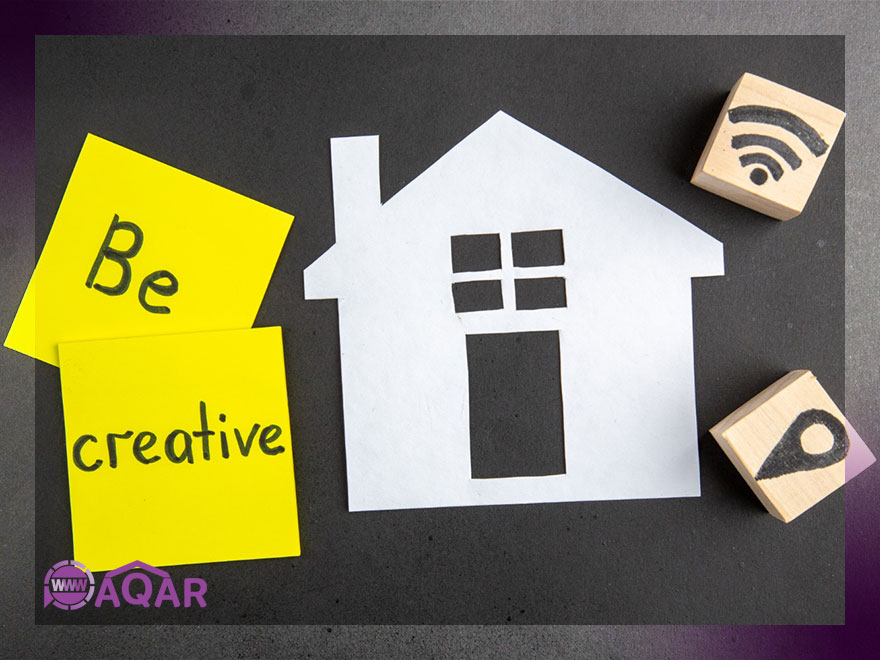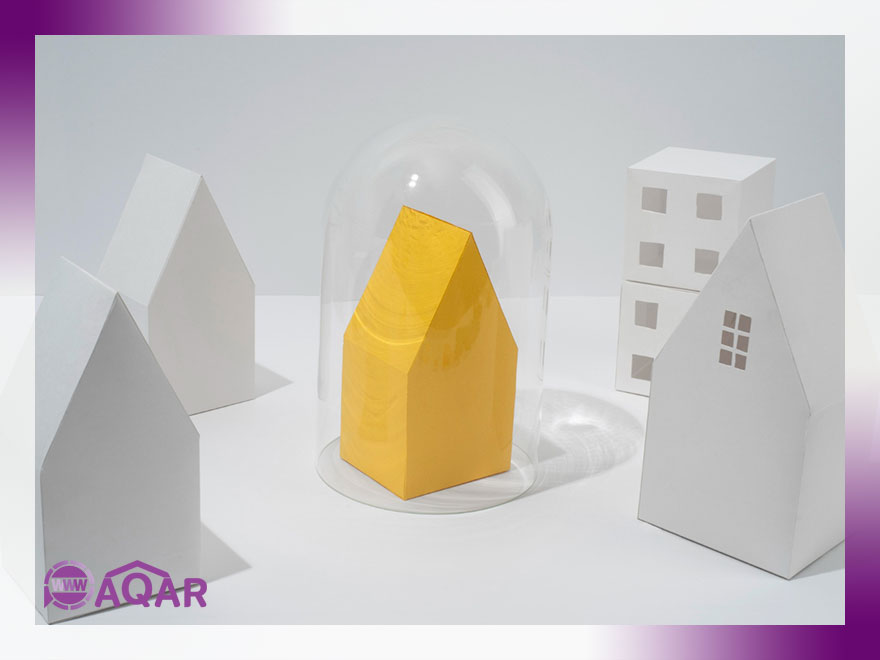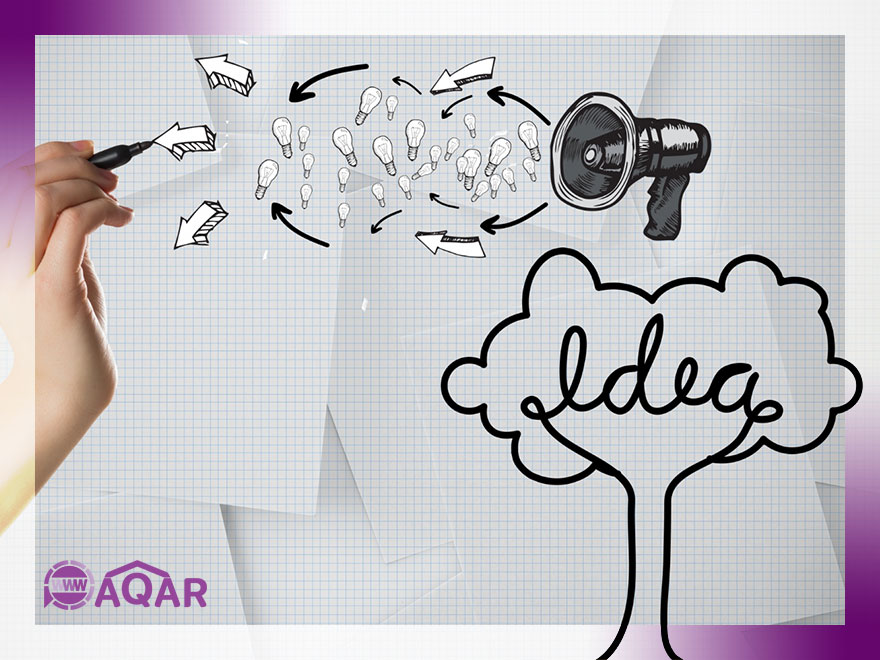In today’s competitive real estate market, your brand is often the first impression potential clients have of your services. With 89% of clients researching real estate agents online before making contact, establishing a strong professional identity has become essential for success. Real estate branding encompasses far more than just a logo or business card—it’s the complete client experience that differentiates you from the 2.1 million active real estate agents across the country.
Effective real estate branding can lead to 23% more referrals and 31% higher commission rates, making it one of the most valuable investments a real estate professional can make. Whether you’re a new real estate agent building your first personal brand or an established agency looking to strengthen your market position, this comprehensive guide will provide you with the strategic process and essential elements needed to create a distinctive brand identity that attracts clients and drives business growth.
What is Real Estate Branding and Why It Matters
Real estate branding is the strategic process by which individual real estate agents or agencies create, communicate, and sustain a distinct identity within the marketplace. This goes beyond visual elements to encompass your unique value proposition, professional reputation, client experience, and the emotional connection you build with your target audience.

A comprehensive real estate brand includes several key components that work together to create a cohesive professional identity. Your brand identity combines visual elements like logos, color schemes, and typography with your brand personality, core values, and brand message. It’s how you present yourself across all touchpoints, from your marketing materials and social media accounts to your client interactions and industry events.
The distinction between personal branding for individual agents and agency branding is crucial. A personal brand typically focuses on the individual real estate agent’s unique strengths, personality, and approach to serving clients. It highlights personal experiences, local market knowledge, and the agent’s distinctive service style. Agency branding, on the other hand, captures the collective mission, values, and market positioning of a multi-agent office or brokerage, creating a unified identity that all team members can represent.
Statistics demonstrate the tangible impact of strong branding in the real estate space. According to the National Association of REALTORS® 2024 Profile of Home Buyers and Sellers, 68% of sellers found their agent through referrals or had used the agent previously, highlighting how brand reputation drives repeat business. Additionally, consistent branding across all channels increases revenue by up to 23%, while 92% of home buyers start their search online, making digital brand presence essential for modern real estate professionals.
The benefits of effective real estate branding extend far beyond initial client attraction. A strong brand builds trust and credibility, differentiates you from other agents in your market, and creates lasting relationships that generate repeat business and referrals. In an industry where relationships and trust are paramount, your brand becomes the foundation for long-term success and sustainable business growth.
Foundation Elements of Successful Real Estate Branding
Building a successful real estate brand starts with establishing solid foundational elements that will guide all your marketing efforts and client interactions. These core components serve as the blueprint for your professional identity and ensure consistency across every aspect of your business.

The first critical element is defining your unique value proposition (UVP)—what specifically sets you apart from other real estate agents in your market. Your UVP should clearly articulate the distinctive benefits clients receive when working with you rather than your competitors. This might be your extensive market knowledge of luxury homes, your expertise with first time buyers, your innovative use of technology, or your exceptional service approach. A strong UVP answers the question: “Why should someone choose me over the hundreds of other agents available?”
Identifying your target audience segments is equally important for effective real estate branding. Rather than trying to serve everyone, successful agents focus on specific client types where they can deliver exceptional value. Your target audience might include first-time buyers seeking guidance through the complex purchase process, luxury clients requiring white-glove service, real estate investors looking for cash flow properties, or seniors downsizing their homes. Understanding your ideal clients allows you to tailor your brand message, marketing materials, and service approach to resonate with their specific needs and preferences.
Establishing your brand personality and core values creates the emotional foundation of your real estate brand. Your brand personality reflects how you want clients to perceive you—whether that’s trustworthy and reliable, innovative and tech-savvy, warm and community-focused, or sophisticated and luxury-oriented. Your core values should align with what matters most to your target audience and guide your decision-making in client interactions and business practices.
Creating a clear brand mission statement and vision for the next five years provides direction for your brand development. Your mission statement should concisely express your purpose as a real estate professional and the value you bring to clients’ lives. Your vision statement outlines where you want your brand to be positioned in the future, whether that’s becoming the top luxury agent in your market, building a team of specialized agents, or expanding into commercial real estate.
Developing Your Brand Identity and Positioning
Creating a distinctive brand identity requires thorough research and strategic positioning that differentiates you in your local market. Start by conducting a competitive analysis of the top 10 real estate agents in your area. Examine their marketing materials, social media presence, website messaging, and client reviews to identify gaps in the market and opportunities for differentiation.
Your brand positioning statement should follow this framework: “For [target audience], [your name] is the real estate professional that [unique benefit or solution].” For example: “For luxury homebuyers in downtown Seattle, Sarah Johnson is the real estate expert that provides exclusive access to off-market properties and white-glove concierge service.” This positioning statement becomes the foundation for all your marketing messages and helps potential clients immediately understand your value.
Defining your niche specialties is crucial for establishing credibility and attracting ideal clients. This might focus on specific property types (luxury homes over $1 million, condos under $300,000, commercial properties), client demographics (millennials, retirees, international buyers), or geographic areas (specific neighborhoods where you have deep market knowledge). Specialization allows you to become known as the go-to expert in your chosen area rather than being perceived as a generalist.
Crafting your brand story creates an emotional connection with potential clients by sharing your background, passion for real estate, and the experiences that shaped your approach to serving clients. Your brand story should be authentic and relatable, highlighting what drew you to real estate and what drives your commitment to client success. This narrative becomes the foundation for your website content, social media posts, and client presentations.
Visual Identity and Design Elements
Your visual identity serves as the foundation for all marketing materials and creates immediate recognition in the marketplace. A professional visual identity system ensures that every touchpoint with potential clients reinforces your brand and builds credibility.

Creating a professional logo is the cornerstone of your visual brand identity. Your logo should work effectively across both digital platforms and print materials, from business cards to yard signs to social media profiles. Consider working with a professional designer to create a logo that reflects your brand personality and appeals to your target audience. The logo should be simple enough to be recognizable at small sizes while being distinctive enough to stand out in a crowded market.
Selecting your brand colors involves more than personal preference—color psychology plays a significant role in how potential clients perceive your brand. Blue conveys trust and reliability, making it popular among real estate professionals who want to emphasize their dependability. Gold suggests luxury and premium service, ideal for agents specializing in high-end properties. Green represents growth and prosperity, appealing to clients making one of their largest financial investments. Choose 2-3 primary colors that work well together and reflect your brand personality.
Typography choices should complement your logo and reinforce your brand personality. Select primary and secondary fonts that are professional and readable across all applications. Avoid trendy fonts that may become dated quickly, instead choosing classic typefaces that will maintain their appeal over time. Ensure your chosen fonts are available across different platforms and applications for consistency.
Investing in professional headshots is essential for building trust and credibility with potential clients. Plan for 3-5 different poses and backgrounds that can be used across various marketing materials. Your headshots should reflect your brand personality—whether that’s approachable and friendly, sophisticated and professional, or confident and authoritative. Update your professional photos every 2-3 years to maintain a current and polished appearance.
Developing comprehensive brand guidelines ensures consistency across all applications. Your brand guidelines document should include specific color codes (RGB for digital use, CMYK for print, and HEX for web applications), logo usage rules, typography specifications, and examples of proper and improper brand implementation. This document becomes invaluable when working with vendors, team members, or marketing professionals who need to create materials on your behalf.
Creating Consistent Marketing Materials
Consistency across all marketing materials reinforces your brand and builds recognition in the marketplace. Every piece of collateral should immediately be recognizable as part of your brand family, from business cards to listing presentations.
Design business cards, brochures, and yard signs using your established visual identity system. Your business cards should include essential contact information while showcasing your brand personality through design elements. Brochures and listing flyers should follow the same visual template, creating a cohesive look across all printed materials. Yard signs are often the first physical touchpoint with your brand, so ensure they’re eye catching and clearly branded with your logo and contact information.
Creating branded email signature templates ensures every digital communication reinforces your professional identity. Include your logo, contact information, social media links, and a brief tagline that communicates your value proposition. Consistent email signatures across all team members (if you have a team) create a unified professional appearance.
Developing branded templates for listing presentations and buyer guides saves time while maintaining consistency. These templates should incorporate your visual identity elements while providing valuable information to clients. Professional-looking presentations build credibility and demonstrate your attention to detail and commitment to quality service.
Tools like Canva Pro or Adobe Creative Suite enable real estate professionals to create professional marketing materials without extensive design experience. Canva Pro offers real estate-specific templates that can be customized with your brand elements, while Adobe Creative Suite provides more advanced design capabilities for those willing to invest time in learning the software.
Digital Branding and Online Presence
In today’s digital-first world, your online presence often serves as the primary way potential clients discover and evaluate your services. A strong online presence requires strategic planning across multiple platforms and consistent implementation of your brand identity.

Building a mobile-responsive website with IDX integration and lead capture forms is essential for converting online visitors into potential clients. Your website should clearly communicate your unique value proposition, showcase your market knowledge, and make it easy for visitors to contact you. Include detailed neighborhood information, market reports, and client testimonials to demonstrate your expertise and build trust with potential clients.
Optimizing for local SEO helps potential clients find you when searching for real estate services in your area. Incorporate keywords like “realtor in [city name]” and “homes for sale [neighborhood]” naturally throughout your website content. Create location-specific pages for each area you serve, including detailed neighborhood information, recent sales data, and local market insights. This content helps establish your expertise while improving your search engine rankings.
Creating and optimizing your Google My Business profile is crucial for local visibility. Aim to maintain at least 50 customer reviews with a 4.8+ star rating. Regularly post updates about new listings, market insights, and community involvement to keep your profile active and engaging. Respond promptly to all reviews, both positive and negative, to demonstrate your commitment to client satisfaction.
Claiming and optimizing profiles on major real estate platforms like Zillow, Realtor.com, and Trulia ensures consistent branding across all touchpoints where potential clients might discover you. Upload professional photos, complete all profile information, and regularly update your listings and contact information. These platforms often rank highly in search results, making them valuable for establishing your online presence.
Setting up professional email addresses using your domain name rather than generic providers like Gmail or Yahoo reinforces your professional image. Your email address should be simple and professional, such as [your name]@[your brand].com. This small detail builds credibility and reinforces your brand with every email communication.
Social Media Branding Strategy
Social media platforms offer unique opportunities to showcase your personality, demonstrate market knowledge, and build relationships with potential clients. Each platform requires a tailored approach while maintaining consistent branding across all channels.
Facebook serves as an excellent platform for community-focused content and relationship building. Share local market updates, community events, and behind-the-scenes content that showcases your involvement in the local area. Join local community groups and real estate Facebook groups to expand your network and demonstrate your market knowledge through helpful contributions to discussions.
Instagram’s visual nature makes it perfect for showcasing properties and your professional lifestyle. Use high-quality photos of listings, local attractions, and client success stories to build engagement. Instagram Stories provide opportunities for more casual, behind-the-scenes content that helps potential clients get to know your personality and approach to business.
LinkedIn focuses on professional networking and thought leadership. Share market analysis, industry insights, and professional achievements to build credibility with other professionals who might become referral sources. Connect with mortgage lenders, home inspectors, attorneys, and other real estate professionals to expand your referral network.
Creating content calendars with 3-5 posts per week ensures consistent engagement without overwhelming your audience. Plan a mix of content types including new listings, market updates, client testimonials, educational content, and personal insights. Using branded templates for social media posts and stories maintains visual consistency while saving time on content creation.
Actively engage with your audience by responding to comments, sharing relevant content from other local businesses, and participating in community discussions. Social media is a two-way conversation, and real estate agents who engage authentically build stronger relationships and attract more referrals.
Content Marketing and Thought Leadership
Establishing yourself as a trusted real estate expert requires consistent creation and sharing of valuable content that demonstrates your market knowledge and expertise. Content marketing builds trust, improves search engine visibility, and positions you as the go-to resource for real estate information in your market.

Creating monthly market reports with local statistics and trends provides ongoing value to your audience while showcasing your market knowledge. Include data on average days on market, price trends, inventory levels, and economic factors affecting the local market. Make these reports visually appealing and easy to understand, avoiding industry jargon that might confuse potential clients.
Writing blog posts about home buying and selling tips, neighborhood guides, and market analysis helps establish your expertise while improving your website’s search engine rankings. Focus on topics your target audience cares about, such as “First-Time Buyer’s Guide to [Your City]” or “Luxury Home Features That Add Value.” Create comprehensive, helpful content that addresses common questions and concerns.
Producing video content including virtual tours, client testimonials, and educational content significantly increases engagement and builds personal connections with potential clients. Video allows clients to get to know your personality and communication style before meeting you in person. Consider creating a weekly video series covering market updates, home maintenance tips, or neighborhood spotlights.
Starting a real estate podcast or YouTube channel focused on your local market can establish you as a thought leader and attract clients from a wider geographic area. Interview local business owners, city officials, and community leaders to provide valuable insights about the area. Consistent, high-quality content builds an audience over time and demonstrates your commitment to the community.
Speaking at local events and hosting first-time homebuyer seminars positions you as an expert while providing valuable service to the community. Partner with local lenders and title companies to co-host educational events. These activities build your reputation, expand your network, and often generate immediate leads from attendees.
Building Relationships and Networking
Strong relationships form the foundation of sustainable success in real estate, where referrals and repeat business drive long-term growth. Effective networking extends beyond transactional interactions to build genuine connections that benefit all parties involved.

Joining local organizations like the Chamber of Commerce and Rotary Club provides opportunities to meet business leaders and potential referral sources in your community. These organizations often include small business owners, executives, and professionals who may need real estate services or know others who do. Regular attendance and active participation demonstrate your commitment to the community and build meaningful relationships over time.
Building referral partnerships with mortgage lenders, home inspectors, contractors, and other real estate professionals creates a network of trusted resources for your clients while generating reciprocal referrals. Look for professionals who share your commitment to excellent service and whose values align with your brand. Formal referral agreements can help structure these relationships and ensure mutual benefit.
Attending industry events like NAR conferences and local real estate association meetings keeps you current on industry trends while expanding your professional network. These events provide opportunities to learn from successful agents, discover new tools and strategies, and build relationships with other professionals who might become referral sources or collaboration partners.
Sponsoring local sports teams or community events increases brand visibility while demonstrating your commitment to the community. Choose sponsorship opportunities that align with your brand values and reach your target audience. Youth sports teams, charity events, and community festivals often provide excellent exposure at reasonable costs.
Creating a comprehensive CRM system helps maintain relationships with past clients, potential clients, and referral sources. Regular follow-up with past clients through phone calls, emails, and holiday cards keeps you top-of-mind for future transactions and referrals. A good CRM system tracks interaction history, important dates, and preferences to personalize your communications and strengthen relationships.
Measuring Brand Success and ROI
Tracking the effectiveness of your real estate branding efforts ensures you’re investing time and money in strategies that generate results. Establishing clear metrics and regularly monitoring progress helps optimize your brand strategy and demonstrate return on investment.
Website analytics provide valuable insights into how potential clients interact with your online presence. Track metrics like unique visitors, page views, time on site, and conversion rates using Google Analytics. Monitor which content generates the most engagement and leads to optimize your content strategy. Pay particular attention to local search traffic and mobile usage patterns to ensure your website meets user expectations.
Lead generation and conversion tracking helps identify which branding efforts produce the best results. Track the source of new leads (website, social media, referrals, networking events) and monitor conversion rates from lead to client. This data helps you allocate resources to the most effective brand-building activities and identify areas that need improvement.
Social media engagement rates and follower growth indicate how well your content resonates with your audience. Track metrics like likes, comments, shares, and click-through rates across all platforms. Quality engagement often matters more than follower count—focus on building meaningful interactions with potential clients and referral sources rather than simply accumulating followers.
Brand awareness can be measured through client surveys, market recognition, and share of voice in your local market. Ask new clients how they heard about you and what factors influenced their decision to work with you. Monitor online reviews and social media mentions to gauge public perception of your brand. Track your ranking in local “best of” lists and industry recognition to measure professional reputation.
Calculating cost per lead and return on marketing investment helps optimize your branding budget. Track expenses for website development, social media advertising, content creation, and networking events against the leads and closed transactions they generate. This analysis helps identify the most cost-effective branding strategies and justify continued investment in successful tactics.
Setting quarterly goals for brand growth and market share provides direction and motivation for your branding efforts. Establish specific, measurable objectives like increasing website traffic by 25%, growing social media followers by 30%, or achieving a 4.8-star average rating across review platforms. Regular goal review helps maintain focus and momentum in your brand-building efforts.
Common Branding Mistakes to Avoid
Learning from common branding mistakes can save time, money, and reputation damage while accelerating your path to successful brand development. Many real estate agents make predictable errors that undermine their branding efforts and limit their growth potential.

Using generic stock photos instead of authentic, local imagery fails to create emotional connections with potential clients. Generic photos make your brand appear impersonal and interchangeable with competitors. Invest in professional photography of your local market, including neighborhood scenes, local landmarks, and actual properties you’ve sold. Authentic imagery builds trust and reinforces your local market expertise.
Inconsistent messaging across different platforms and marketing materials confuses potential clients and weakens brand recognition. Ensure your unique value proposition, brand personality, and core messages remain consistent whether someone encounters you on social media, your website, or printed materials. Develop clear brand guidelines and reference them regularly when creating new content.
Copying competitors’ branding instead of developing a unique identity makes it difficult to differentiate yourself in the market. While researching competitors is important for understanding market positioning, directly copying their approach won’t help you stand out. Focus on identifying gaps in the market and developing authentic brand elements that reflect your unique strengths and personality.
Neglecting to trademark your business name or logo can create legal complications and limit your ability to protect your brand investment. Consult with an attorney about trademark protection, especially if you plan to expand your business or invest significantly in brand development. Basic trademark research can help avoid conflicts with existing brands.
Overcomplicating your brand message or trying to appeal to everyone dilutes your impact and confuses potential clients. A clear, focused brand message resonates more strongly than vague, generic messaging. Resist the temptation to add multiple value propositions or target too many different client types simultaneously.
Failing to update your branding as your business evolves can leave you with outdated messaging and visual identity that no longer reflects your current expertise and market position. Regularly review your brand elements and consider updates as you gain experience, expand into new markets, or shift your target audience focus.
Advanced Branding Strategies for Growth
As your real estate brand matures and gains market recognition, advanced strategies can accelerate growth and establish market leadership. These approaches require greater investment but can significantly expand your reach and influence.

Building a team brand while maintaining individual agent identities requires careful planning to balance unified messaging with personal differentiation. Develop clear guidelines for how team members represent the overall brand while allowing space for individual personalities and specialties. Create systems for consistent client experience across all team members while leveraging individual strengths and relationships.
Expanding into luxury market segments often requires elevated branding that conveys sophistication, exclusivity, and premium service. This might include redesigning marketing materials with more elegant visual elements, partnering with luxury brands for cross-marketing opportunities, and investing in higher-end photography and marketing production. Luxury branding demands exceptional attention to detail and consistent delivery of white-glove service.
Creating branded mobile apps for clients and lead generation provides additional touchpoints for brand engagement while offering unique value. Apps might include property search functionality, market updates, mortgage calculators, and direct communication with your team. While app development requires significant investment, it can differentiate your brand and improve client experience.
Developing strategic partnerships with luxury brands and local businesses extends your brand’s reach while adding value for clients. Partner with interior designers, luxury car dealerships, high-end restaurants, or exclusive clubs to create cross-referral opportunities and elevated client experiences. These partnerships should align with your brand values and target audience interests.
Implementing video marketing campaigns and virtual reality property tours positions your brand as innovative and tech-forward. Professional video production for property tours, client testimonials, and market updates creates engaging content that stands out in crowded social media feeds. Virtual reality tours provide immersive experiences that can attract out-of-area buyers and demonstrate your commitment to cutting-edge marketing.
Advanced digital marketing techniques like AI-powered personalization, dynamic website content, and sophisticated email marketing automation can significantly improve lead conversion rates. These technologies allow you to deliver personalized experiences at scale while maintaining the human touch that’s essential in real estate relationships.
Building thought leadership through industry speaking engagements, podcast appearances, and expert commentary establishes your brand beyond your local market. Contributing to industry publications, participating in expert panels, and offering commentary on market trends positions you as a recognized authority and can attract high-value clients and referral opportunities.
Effective real estate branding for agents and agencies requires a strategic approach that combines foundational elements with consistent execution across all client touchpoints. From developing your unique value proposition and visual identity to building relationships and measuring results, every aspect of your brand should work together to attract ideal clients and differentiate you in the competitive real estate market.
The investment in comprehensive branding pays dividends through increased referrals, higher commission rates, and sustainable business growth. Start with the foundation elements—your unique selling proposition, target audience definition, and core brand values—then systematically implement visual identity, digital presence, and content marketing strategies.
Remember that real estate branding is a long-term investment that requires consistent effort and periodic refinement. As your business evolves and market conditions change, your brand should adapt while maintaining the core elements that create recognition and trust with your clients. The agents and agencies that commit to building strong brands today will be the market leaders of tomorrow.
Read more:
How to Generate Real Estate Leads Online Without Paying for Ads
Real Estate Marketing on Instagram: The Complete Guide to Growing Your Business in 2025



One thought on "Real Estate Branding for Agents and Agencies: Complete Guide to Building Your Professional Identity"